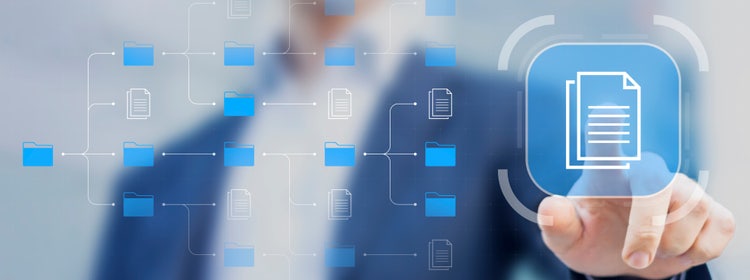Epson, MTEC, and Adobe legal department automate document experiences with Adobe Acrobat Services

Image credit: Adobe Stock/NicoElNino.
With more than 2.5 trillion PDFs in the world and many more being created daily, PDF continues to play an essential role in the way businesses communicate and collaborate. In today’s hybrid workplace, businesses need to be flexible and accommodating to the constantly changing needs of their employees. The demands to grow business mean employees need to be able to create, review, analyze, and get sign off on documents faster than ever. More and more employees are also working remotely and in distributed office space where they do not have access to all the same tools to work that they did in the office.
Document automation technology can transform tedious, error-prone manual processes into highly efficient and secure document workflows for businesses across all industries and departments. This is particularly helpful for organizations that deal with large amounts of documents, have multi-step workflows, and want to unlock information from documents to make better business decisions.
Part of Adobe Document Cloud, Adobe Acrobat Services is a collection of cloud-based services that are designed to power document workflows and integrate with existing enterprise infrastructures. The efficient and reliable services enable organizations across industries to automate and scale document processes and allow people to focus on the high-impact work.
Here are a few use cases:
Adobe’s legal department lets business users self-serve their contracts
Some of the most common documents handled by the Adobe legal team are quotes, sales contracts, procurement contracts, and non-disclosure agreements (NDAs). While most of sales deals use standard terms, pricing, and conditions, the legal team was still required to spent a great deal of time drafting and reviewing every contract. Adobe’s own legal department shifted this paradigm by building a new end-to-end agreement solution utilizing Adobe Acrobat Sign and Adobe Acrobat Services.
With the Adobe Agreement Experience, an employee, such as a sales representative, can simply choose the products, language, and other options required for the contract from a repository of modular paragraphs and phrases approved by the legal team, which are combined with a Microsoft Word template to dynamically generate a custom contract using the Adobe Document Generation API. Agreement Experience then automatically moves the contract through different internal approvals, depending on the type of document and user persona, before executing the contract with the Adobe Acrobat Sign API for e-signatures. Completed documents are stored in the cloud as PDF documents in a repository and are discoverable.
By empowering sales representatives to close these standard deals by themselves, Adobe accelerates contract execution while freeing up legal resources to concentrate on more complex contracts. Agreement Experience is projected to save Adobe deal desk and sales attorneys 36,000 hours annually on contracts.
For more details, see the Adobe Agreement Experience story.
MTEC improves speed and accuracy of financial data analysis by automating text extraction
MTEC is a small but mighty team that analyzes market data, financial data, and other numerical data that affect the movement of stock market prices. It provides its parent company, Mitsubishi UFJ Trust and Banking Corporation, and its group companies with the mathematical models needed to make investment and financing decisions.
Conventional analysis methods only focus on numerical data. There is a strong demand in the field of financial data analysis that includes market psychology, in addition to numerical data. The institute has been an early adopter in using text in financial statements and other documents in data analysis. MTEC launched a new project to evaluate Environment, Social, and Governance (ESG) issues. They needed to analyze integrated reports, which add non-financial information such as corporate governance, corporate social responsibility (CSR), and intellectual property to a company’s financial information. To fully understand the content of dozens of pages in an integrated report, maintaining the sentence structure of extracted text is essential.
In the past, MTEC had to separate some sentences and splice others together to decipher the meaning of the text data extracted from PDF files. The Adobe PDF Extract API eliminates the need for such work and helps identify context through headings. Another use is to determine the extent and where sustainable development goals are present in a report, and from that determine materiality and compare that against another company’s level of focus on a particular issue. With Adobe PDF Extract API, MTEC can significantly reduce analysis and verification cycle times.
For more details, see MTEC’s customer story.
Epson satellite employees save time from automatic PDF conversion during printing
Recently, Epson began expanding support for workers in satellite offices. Some of these satellite offices now include Epson printers featuring Epson Print Admin, which is powered by Adobe PDF Services API, that allows workers to more quickly, accurately, and securely print documents on the way to a meeting.
Using the Adobe PDF Services API, users now just select any Microsoft Office document on the Epson Print Admin interface. The document is automatically converted into a high-fidelity PDF file, eliminating many of the conversion errors that users might experience on other types of PDF conversion tools. Users then simply select print settings and click the print button.
By incorporating the Adobe PDF Services API, printing is much easier for users, as they no longer need to manually convert documents. Removing the manual steps also makes printing twice as fast. Workers spend less time waiting for paper, so they can spend more time in the satellite office on their work.
For more details, read Epson’s customer story.
Power your document processes with Adobe Acrobat Services — start your free trial today.